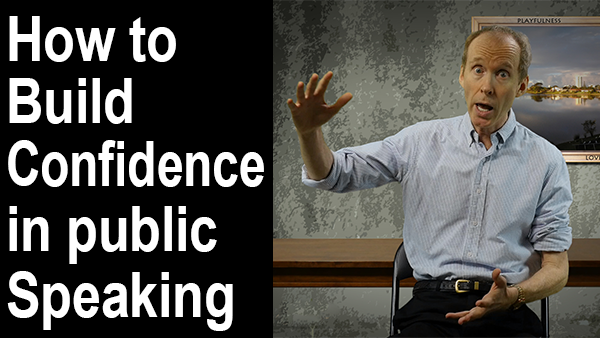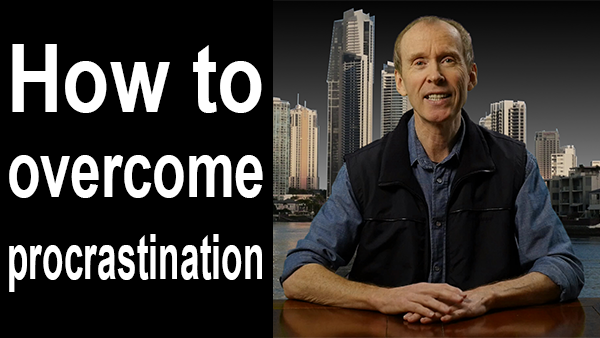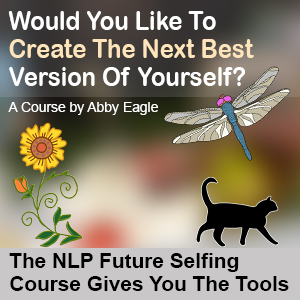



Learn to resolve anxiety, social anxiety, eco-anxiety and panic attacks using NLP and Hypnotherapy Gold Coast Robina. Phone 07 5562 5718 or send an email to book a free 20 minute telephone, Skype or Skype session with Abby Eagle.. Learn to build confidence in yourself using Neuro Linguistic Programming. NLP Hypnotherapy Meditation Gold Coast, Robina. Online NLP coaching available - Skype and Zoom sessions.
Overcome Fear, Anxiety and Panic Attacks with NLP, Hypnotherapy and Meditation
No fuss - no stress - no tears - just rapid gentle change - using Neuro Linguistic Programming (NLP) the underlying issues are dealt with quickly - replace fear, anxiety and panic attacks with confidence, relaxation and playfulness. Corporate programs available to help build in confidence in the board room.
Click the Image to Watch on YouTube
Building confidence is easy with NLP and Self Hypnosis
NLP and hypnotherapy is cost effective. In most cases you will only need 1-3 sessions to significantly lessen the anxiety and experience robust feelings of confidence and relaxation. In some cases it may take a little longer.
 What is anxiety?
What is anxiety?
Anxiety affects everyone to some degree at some time in their life. Anxiety is characterised by a state of unease, fear, worry, tension and nervousness about some future event. In some types of anxiety the person knows specifically what they are nervous about, while for others anxiety may just be a general feeling of unease - its exact cause seeming to allude them.
Anxiety Disorders are the most common mental illness in the U.S., with 40 million (18.1%) of the adult U.S. population affected. (Anxiety disorders assoc. of America)
Approximately 18.8 million American adults, or about 9.5 percent of the U.S. population age 18 and older in a given year, have a depressive disorder. (http://www.depressionperception.com)
75% of the general population experiences at least "some stress" every two weeks. (National Health Interview Survey)
Stress contributes to heart disease, high blood pressure, strokes, and other illnesses in many individuals.
Stress affects the immune system, contributes to the development of alcoholism, obesity, suicide, drug addiction, cigarette addiction, and other harmful behaviors. (http://www.depressionperception.com/stress)
According to some reports many people are more afraid of speaking in public than they are of dying. Glossophobia (fear of speaking in public) may affect as many as 75% of all people who have ever had to speak in public. (Wikipedia)
Emotional trauma affects most of the population in some way at some time in their life. In some cases there may have been low levels of fear and anxiety in the past but then financial stress, moving home, starting a new job, a relationship breakdown or a bad drug experience triggers an acute attack of anxiety. It is not unusual for marijuana users to experience anxiety that builds over time.
Click the Image to Watch on YouTube
 What is Confidence?
What is Confidence?
Michael Hall tells us that confidence could mean something different to each of us.
1) “Confidence” as assurance of being able to do something. The person wants to be sure that she can actually do something. In other words, “confidence” to her is equal to “being sure.” The person is saying, “I will only feel confident when I have a guarantee that I will succeed in what I want to do. If I don’t feel sure, if I feel any slight twinges of doubt or frustration, then I’m not ‘confident.’” Now the more risk-averse a person is, then the more that person will be questioning his ability, doubting his skills, and not sure. Then, with being unsure, the person feels the lack of confidence. The focus for this person is on the feeling not being sure rather than on developing the competence for being able to do the skill.
Confidence literally refers to your faith (fideo) in or with (con) yourself. It speaks about your faith that you can do something. That’s why confidence requires evidence that you have done it and that means it is a thing of history— you have in the past demonstrated several or many times that you can do something. Now you can trust yourself. That evidence convinces you that you can do it, that you are competent in that skill. So confidence is based on competence. No competence—no confidence. Confidence without competence is a false and delusional trust in yourself. We call people who are confident when they can’t demonstrate competence, fools.
2) “Confidence” as comfortable in learning and doing. Others will use the word “confidence” to essentially mean “comfort.” In other words, “confidence” is equal to a feeling, to feeling comfort, at ease, no stress, no strain, no discomfort, etc. For this person, any discomfort equates with the lack of confidence. She can therefore loss “confidence” very quickly whenever there are any feelings of discomfort. This will be true for almost everything new, different, and challenging. Yet because in taking on new things, we are inevitably required to get out of our “comfort zone,” all new learning and practicing will be uncomfortable, even unpleasant, disturbing, etc. If this automatically equates to not having confidence, then all new learnings and challenges equates with the lack of confidence.
3) “Confidence” as self-efficacy for future unknown challenges. Yet another uses the word “confidence” as a synonym for “trust in myself to be able to handle some future challenge.” This person is “confident” if he knows that he can trust himself to figure something out, handle any challenge that arise, and use his wits and relationship skills to create solutions. This is what the person means by the word “confidence.”
Actually, he is using “confidence” for a different concept, for self-efficacy, which refers to a future event. Most people develop this after numerous experiences of becoming competent in something. They then learn something about their learning experiences — “It’s just a matter of learning, practice, and eventually I will get it.” The more times they walk the pathway from incompetence to competence, the more likely they can jump a logical level and conclude, “I have done this many times; this is just another instance of moving from incompetence to competence. I know I will eventually get it.”
4) “Confidence” as a sense of self-value and worth. Others confuse self-esteem with self-confidence, so when they ask for confidence, they want to have a strong sense of personal value in some context. Yet because they frame their personal value and worth as conditional, then whenever they engage in something new, something they are not all that competent and skilled at, they then question their self-esteem and feel that their sense of self is fragile or shaking in a given role or activity. Now they want “confidence.” They want self-assurance that they are worthwhile. (Used with permission. Author: L. Michael Hall. 2015 Meta-Coach Reflections Newsletter– #46. Nov. 18, 2015)
 What treatments are available for anxiety?
What treatments are available for anxiety?
A mainstream therapist, that is a doctor, psychiatrist or psychologist may prescribe medication or some type of counselling for anxiety. Practitioners in the complimentary health profession offer a range of adjunct treatments, including nutritional advice.
 How can NLP, hypnotherapy and meditation help you overcome anxiety?
How can NLP, hypnotherapy and meditation help you overcome anxiety?
In general anxiety responds well to mind therapies such as NLP, hypnotherapy and meditation. This makes sense considering that anxiety is related to how one perceives the future. For example, two people who are faced with the same life situation may respond quite differently. What one person calls anxiety another may call anticipation.
NLP has shown that it is what we do inside our head that makes the difference. For example, the tonality, volume and tempo of your internal dialogue creates the emotional state. So by changing those elements the emotional state changes.
Thirty minutes of meditation each day has been shown to very effective for treating anxiety because the mind naturally slows and becomes quieter. Meditation also confers a range of health benefits to the body. Enrol in the online meditation course today.
For those people who find it difficult to allocate thirty minutes to meditation each day, their next best option would be a series of NLP and hypnotherapy sessions in which they learn how to change their mind to respond more appropriately to the stresses of the world.
 Read what Jackie has to say about NLP
Read what Jackie has to say about NLP
"I did the 'NLP For Personal Growth Workshop' because I wanted to get control over my eating habits; to deal with panic attacks; and to increase my self worth and self confidence. I now have more confidence and am less worried about what other people may think. In fact now I'm more relaxed and also excited about the future. I feel a sense of serene motivation. I believe these results are permanent.
I now understand that you need to ask the right questions in order to get the results you want for yourself and most importantly that you need to be very specific in the instructions you give to your unconscious mind- you get what you think. My panic attacks have gone and I am eating less and already losing weight. I'm eager to put the NLP methods into practice and looking forward to the new me that has already begun." Jackie Stewart, Ashmore, Gold Coast Qld
 And read what Melinda said two years after her NLP sessions
And read what Melinda said two years after her NLP sessions
"I had a debilitating problem with fear after a series of Rebirthing sessions, so I visited a kinesiologist to heal the fear but the results only lasted a couple of days while a visit to a Homoeopath did not help at all. I had one NLP session with Abby Eagle. Immediately there was much less fear and anxiety, and I felt more at peace. I now understand the fear was irrational and only a matter of perception. Two years later I can vouch the results I got with Abby are permanent." Melinda Gniot, Sorrento, Gold Coast Qld.
Read what others say about using NLP hypnotherapy to resolve anxiety and panic attacks.
 Comments by a Master
NLP Practitioner
Comments by a Master
NLP Practitioner
It is not unusual for someone to get additional problems or an increase in symptoms after visiting a therapist who has the client relive a trauma. In fact some some therapists seem to pride themselves on being able to get a client to relive a traumatic memory with renewed intensity.
In contrast with NLP and Hypnotherapy it is standard procedure to help the client release a negative emotion with a minimum of fuss. If you suffer anxiety, then the last thing you want to do is feel anxious about visiting a therapist. When you contact a Master NLP Practitioner you can do so with the confidence that the anxiety is soon to be a thing of the past.
Book a free no obligation phone, Skype or Zoom session - Take the opportunity to get your questions answered. When you contact us please specify whether you want a free 20 minute interview or whether you want to book a session. What does a coaching session cost? Varsity Lakes Qld - Gold Coast Office |















